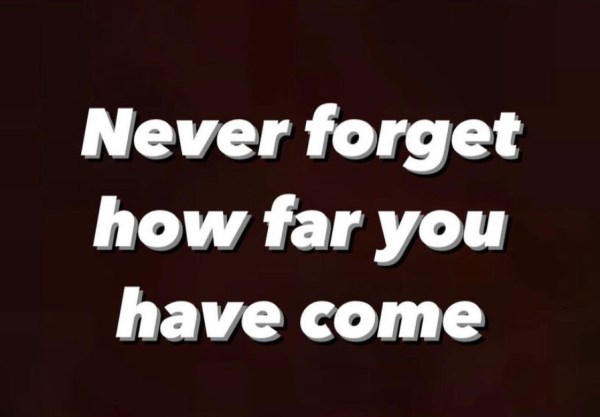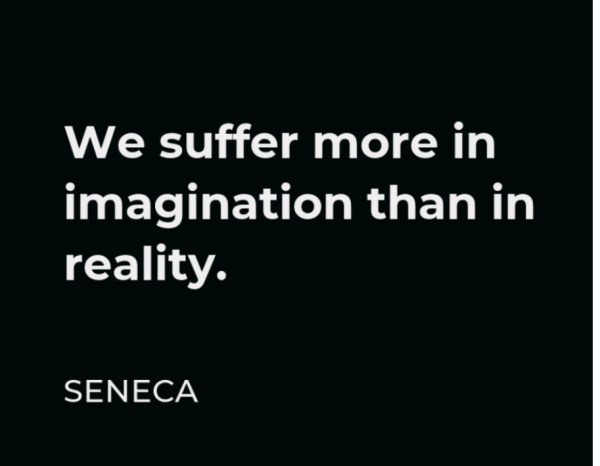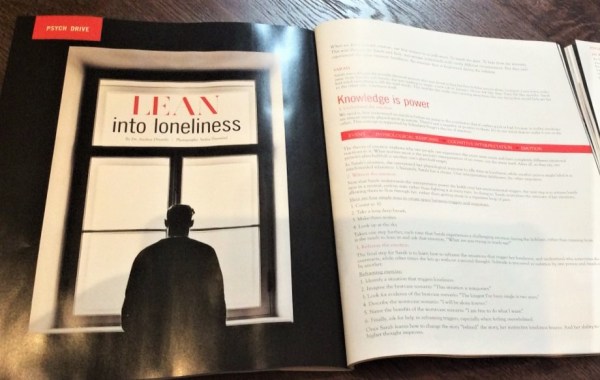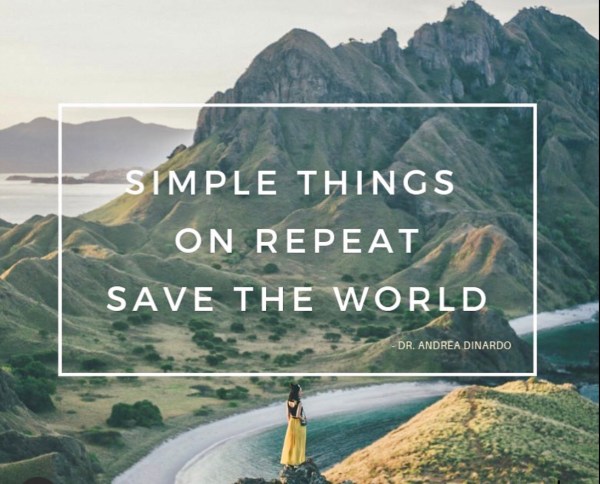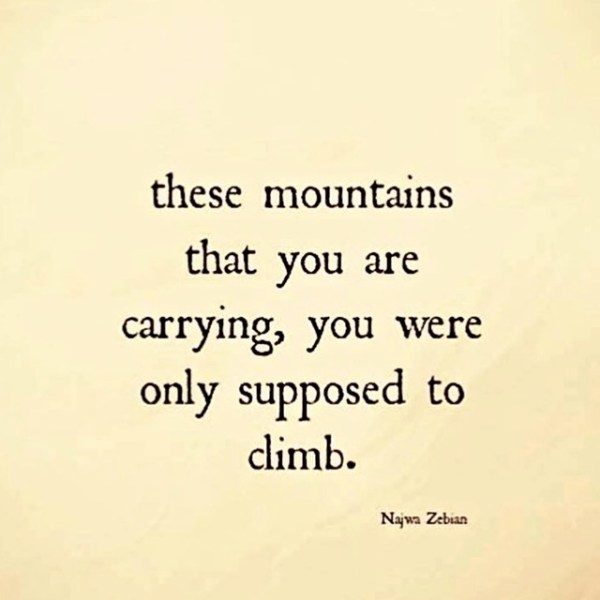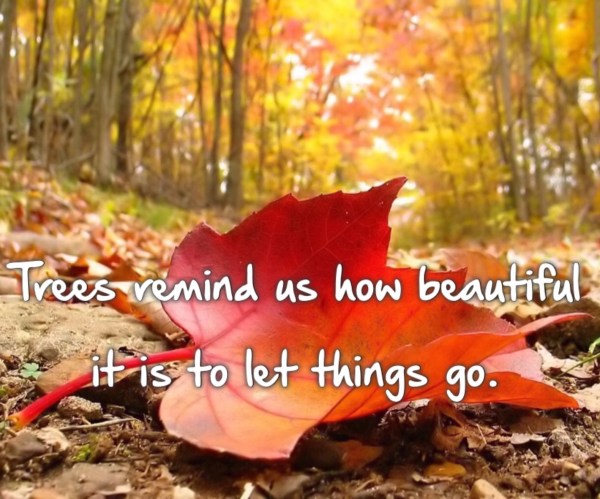https://youtube.com/shorts/tIKPb7edW_w?si=rJrQdgtgJ8SR9krs Do you find Christmas holidays stressful? If you’re anything like Santa, you answered yes! Santa feels the pressure too. Something I wrote about in the Drive Magazine . Including the benefits of leaning into difficult emotions. Because the more we resist discomfort, the longer it lasts. "The root of all suffering is attachment." Buddha https://youtu.be/JU1eYOWaleg?si=m1ItZDTBNHMoLdTN Stop... Continue Reading →
The Sweet Spot
https://youtu.be/fd9TrYI75o0?si=0gaSNLNAWVqWOAE8 The sweet spot is the moment in life when you realize you have arrived and the most interesting part is that you haven’t gone anywhere. Instead, you finally come home to the present moment. The here and now. The sweet spot. Nowhere else to be. But here and now. Right Here. Right Now. The... Continue Reading →
Self-Talk That Lifts You Up
“Be mindful of your self-talk. It's your conversation with the universe.” As humans, we can’t help but look to the next rung on the ladder. Forgetting the 100 rungs we have already climbed. https://youtu.be/1ALCrzw_1Xo Today’s Psychology Challenge Take note of the trail behind you. The hard work. The success. The heartbreak. The soul awakenings. The... Continue Reading →
50 Ways to Calm Your Nervous System
https://youtu.be/MXd_bZn1lqo 50 Calming Exercises Light a candle. Notice the flicker of the flame. Open a window. Watch the trees sway in the breeze. Breathe in fresh air. Record last night’s dreams in a journal. Smile while reading this sentence. Dance to a song from your teenage years. Belt out show tunes in the shower. Burn... Continue Reading →
Three Ways to Bounce Forward
https://youtu.be/ldOlNJ0ds0c The idea we have for our life rarely matches up with the life we end up with. Plan A is fantasy. Plan B is reality. Growth is not a straight line, which is often a blessing in disguise, yet something we seldom realize in the thick of life. How do we move on from... Continue Reading →
The Stories We Tell Ourselves
https://www.youtube.com/watch?v=119i-Qv-ep0 The Stories We Tell Ourselves In this psychology video and article, I share concrete strategies for transforming painful emotional experiences using a model of cognitive psychology. An A-B-C Formula for reality testing that is especially helpful during outer circumstances beyond a person’s control. What’s real? What’s distorted? A-B-C Scenario The scenario I describe in... Continue Reading →
Peace Lives Here
Peace happens in moments. Not days. Not weeks. Not years. Hot coffee. Cozy blankets. Birds singing. The sun rising. https://youtu.be/tNXR9hCHZoc?si=lNaH-DE2kxo60oYe Peace happens in moments. Not days. Not weeks. Not years. Savour the sunshine. Taste every morsel. Dance with abandon. Stroll by the moonlight. Peace happens in moments. Not days. Not weeks. Not years. https://youtu.be/zRSQw-LjU8k Breathe... Continue Reading →
Face Everything and Rise
Fight or Flight Threat Response Every time we feel threatened (threat is the fundamental definition of stress) our first instinct is to “fight or flight“. This perpetual “fight or flight” response loop eventually creates a host of secondary problems, above and beyond, the original stressor. Powerpoint Slide from Broaden and Build Leadership Event, January 2022... Continue Reading →
Twelve Days of Self-Care
I am a strong believer in keeping things simple. The less complicated things are, the more likely we are to repeat the behaviour. Especially when it comes to health and happiness habits. https://youtu.be/0i0tuqAmdaw Twelve Days Day 1: Mindful Mornings Add five to ten minutes of relaxation to each of your morning routines. Time expands when... Continue Reading →
Anchor Yourself With Light
Take a moment and anchor yourself with something that lights you up. That reminds you that you are not alone in this storm. You have been here before. It may have been a personal pandemic, not a global one. But somehow, deep inside, you made it through. And you will again. You have the courage,... Continue Reading →
What’s my purpose?
What's your perspective on purpose? Is it something you do or something you are? Is it ignited at birth? Or at work? Does it expire at death? Or when you retire? https://youtu.be/0WA8LzF5m3Y The way I see it. Purpose is for a lifetime. It's what lights you up, and sets your soul on fire! Video of... Continue Reading →
5 Mindfulness Techniques
1. Be Here Now https://m.youtube.com/watch?v=EiuTpeu5xQc&feature=emb_title Stop Take a breath Observe Proceed 2. Create Space https://m.youtube.com/watch?v=fXNo7GUDizM “Between stimulus and response there is a space. In that space is our power to choose our response. In our response lies our freedom.” Viktor Frankl 3. Find Your Flow https://youtu.be/mZ_bI_t_L_E In psychology, flow, also known as being in the... Continue Reading →
Let Your North Star Guide You
Mindfulness Tip: Look Up The sky connects us to something bigger than ourselves. Challenges appear small in comparison to the vastness of the sky. Solutions seem plausible. Answers come more easily. In the presence of stars, we embrace the profound and surrender it all. https://www.youtube.com/watch?v=0gMq9BNKvOA
The moment of surrender is not when life is over. It’s when life begins.
https://youtu.be/W7dz0FvnkxY?si=WEfPsjb9TVnDgRTK Surrender is not giving in. Surrender is not giving up. It is trusting in something bigger than yourself. Something you can’t quite see. https://youtu.be/I7YD4A900-4 Quietly unfolding. Slowly expanding. In your favour. Behind the scenes.
What advice would you give your younger self?
ASK DR. D … ANYTHING! At a recent leadership conference, student leaders from St. Clair College's Student Representative Council SRC had the opportunity to ask questions live during the final portion of the training event. Questions & Reflections The student leaders raised the reflection bar high during this discussion period. One Question Stood Out The... Continue Reading →
2020 Life Lessons: Be Strong Enough To Be Gentle
Lockdowns have us spending a lot of extra time with the ones we love. Especially during the holidays. And if you’re anything like our household, it requires a whole new level of relationship skills. A deeper level of empathy and compassion for the pressures of the people we are living with. Helpful Tips: Psychology Today... Continue Reading →
You are enough, just as you are.
https://www.youtube.com/watch?v=ygkRUiRacSE You are enough, just as you are.💕 Mirror Exercise: Waking Up with Love
Shine your light
https://youtu.be/pjxCsK2qudw?si=xHsV_IBAKQq47am2 I used to think of life purpose as some great big grand scheme for life, something we spend our whole life chasing after. Daunting for sure. At times overwhelming. Then one day I realized that life purpose was a series of small, fleeting events, rather than one great big span of life. Bite size... Continue Reading →
Enjoy Every Moment
https://www.youtube.com/watch?v=fd9TrYI75o0 Never let the things you want make you forget the things you already have. Nothing Lasts Forever. Good or Bad. Enjoy Every Moment. Embrace it. Be it. See it. Everything you appreciate is you reflecting back. Homework for Today Look Around You. Notice Things Like You Are Seeing Them for the Very First Time.... Continue Reading →
Energizing Self-Talk
How we talk to ourselves matters. Especially at the start of a brand new day. The way I see it, our thoughts are the lyrics to the daily soundtrack of our lives. A topic I discuss with love and laughter during my Women With Drive Speech. Video below ⬇️ https://www.youtube.com/watch?v=1ALCrzw_1Xo Try This One Day at... Continue Reading →
The Stars and The Scars
I see your light. And your darkness. And all your shades of grey. That’s what makes you complete. All the parts of you.Integrating. Changing. Transforming. Simply being. Accepting. This moment. Yourself. Whatever the day may bring. “Ring the bells that still can ring. Forget your perfect offering. There is a crack in everything. That's how... Continue Reading →
Compassionate Listening
Even as a psychologist, I often don’t know what to say. Especially now with so many people experiencing pain and trauma in escalating ways. So rather than assume what someone needs, I have learned over the years to ask one simple question: How Can I Support You? In doing so, I create a safe space... Continue Reading →
Psychology Insights: Self Criticism to Self Compassion
WHY ARE WE SO HARD ON OURSELVES? Great question! One that I’m asked often. And one that I often ask myself. PSYCHOLOGY INSIGHTSWhat causes this behaviour? The answer is multifaceted and includes several factors including how we were parented (when internalized superego and conscience first develops) and eventually how we parent ourselves. For example: When something... Continue Reading →
Celebrating Moms Everywhere
Let's not wait until Mother's Day to celebrate moms everywhere. Let’s celebrate moms today. Including my own. Moms of every age. Moms of every country. Moms of every kind. Cat moms. Dog moms. Aunt moms. Friend moms. Professor moms. Neighbour moms. The only thing that matters is love. Sharing Mom Memories And since Mother's Day... Continue Reading →
Acceptance: Your Peace Depends on It
Acceptance and peace go hand in hand. Watch Video — Click Here Consciously accept the good and the bad that exists in your life. The rain and the sunlight. The shadow and the light. Shift your focus. Change your life. Accepting what is does not lower the bar. Quite the opposite. Acceptance shines a spotlight on... Continue Reading →
Let Your North Star Guide You
My Wish For You Today May you find peace in your home. And calm in your heart. No matter the storm. Psychology Thought for the Day The goal isn’t to get rid of all our negative thoughts and emotions. The goal is to change our response to them. To accept them without judgement. To transcend... Continue Reading →
Breathe
https://m.youtube.com/watch?v=zRSQw-LjU8k Every time we take a long deep breath, we are telling our bodies that we are safe. Each breath connecting our mind, body, and heart. Bringing us back to present time. 5 Breathing Techniques: Follow Your Breath Become aware of each inhalation and exhalation. Focus on the sensations you feel as air passes through... Continue Reading →
Celebrate how far you’ve come.
Today let’s celebrate all the dreams that came true. Merely an idea 5 years ago. It is so easy to get lost in our hopes and motivations for the future. Without realizing how many of aspirations we have already achieved. Together let’s honour how far we’ve come. Only then will we have the fuel and... Continue Reading →
Mindful Moments in California
We’re on a trip to California for our December birthdays and wedding anniversary and I couldn’t imagine a more mindful place to be. Nature everywhere we look. Luminous moonlight. Dancing campfire. Fresh ocean air. Water as far as the eye can see. Sunshine in every nook. 100 year old fig trees. Just outside our hotel... Continue Reading →
Coping With Loneliness
When we feel a painful emotion, our first instinct is to pull away. To numb the pain. To hide from the intensity. This was the case for Sarah and Jack, two unique individuals with vastly different circumstances. But they each experienced the same emotion: loneliness. An emotion that is heightened during the holidays. SARAH Sarah... Continue Reading →
CPR: Catch Pause Repair
https://www.youtube.com/watch?v=KVfeKg78fEY Catch Pause Repair (CPR) is a Framework for Sustainable Mental Health & Resilience Habits. CPR includes three simple steps as outlined in the video. 1. Catch Catch yourself before a stress response escalates by becoming more aware of what triggers you. 2. Pause Pause and take a 60 second time out when you feel... Continue Reading →
5 Simple Stress Relief Techniques
Life is complicated. Stress management shouldn't be. 5 Stress Relief Techniques 1. Gratitude https://m.youtube.com/watch?v=gXDMoiEkyuQ 2. Breathwork https://m.youtube.com/watch?v=zRSQw-LjU8k 3. Movement https://m.youtube.com/watch?v=d4SyONPkus0 4. sur·ren·der https://youtu.be/I7YD4A900-4 5. This moment https://youtu.be/moc-AtmSSGU Repeat Daily 💕
HOPE CHANGES EVERYTHING
H old O n P ain E nds During difficult times, I often tell myself: “What a difference a day makes.” This one simple sentence helps me to remember that tomorrow is a brand new day. Illuminating the possibility that what looks like the end in that dark moment, could in fact be preparing me... Continue Reading →
Patience is the ability to count down before you blast off
What is meant for you is coming for you. https://www.youtube.com/watch?v=FHAotUT2eAY E X P A N S I O N happens in the space in between stress and strength, pain and power. Trust and Believe in Your Divinity. HONOUR this day, this moment, the unknown. You got this! What is meant for you is on its way. https://drandreadinardo.com/2020/05/13/stay-open-to-the-possibilities/
Uplifting Mantras for Uncertain Times
Life lived backwards makes perfect sense. You finally understand WHY the job, the partner, the degree, the house, the friendship, the ______ didn’t work out. BUT what about in the “here and now”? How do we make the leap of faith during the darkest of days? Mantras Are My Answer https://youtu.be/nD4LmUHG2vM?si=j88ssJBGT3y6KepP Find a phrase that... Continue Reading →
FOMO ANXIETY Simple Tips for Feeling Better
This post is for anyone experiencing FOMO. Particularly on a long weekend holiday! https://m.youtube.com/watch?v=I2P5VhC-Ih8 Psychology Insight: Holidays heighten social anxiety of every kind. FOMO especially. Consider these questions as you explore what’s going on below the surface. 1. Do you remember the first time you experienced FOMO? 2. How did you cope with the anxiety... Continue Reading →
EMPOWERING THOUGHTS
Choose the THOUGHTS that emPOWER you today. It takes one word one thought one mantra to shift our mind from pain to power. https://m.youtube.com/watch?v=wIK91yKh0Zo What will your empowering thought be this week? I’d love to know. Share your WORD in comments below! Related Post: Empowering Conversations
Finding the light.
How do you start the day? Do your morning routines lighten you up? Or bring you down? Early morning rituals spark the divine in me. No matter the day. No matter the moment. Angel cards, hot coffee, and mindfulness take me there. Fueling my creativity. Illuminating my path. Shifting me higher. Today’s Angel Reading —... Continue Reading →
Your emotions have a message for you.
Create space for feelings to flow. Emotions are neither good or bad. Only labeling makes it so. Don't run from challenging emotions. Instead, lean in and ask: “What are you trying to tell me?" Witness. Observe. Learn. https://www.youtube.com/watch?v=jQKomXhKKbE&t=29s The best part is how small fear appears close up! We must go in — to get... Continue Reading →
How we talk to ourselves matters
https://m.youtube.com/watch?v=FHAotUT2eAY How we talk to ourselves matters. Particularly in the eye of the storm. Having a “go to” mantra in times of uncertainty helps. Especially in the uncomfortable, agonizing moments between stress and strength. An image that helps me is imagining myself growing roots and wings during dark times. Chanting “I am expanding” as the... Continue Reading →
What brings you joy?
What brings you joy on a Saturday morning, Friday night, or Tuesday afternoon? From my experience, it’s never the time, the day, or the month that brings good vibes. It’s how we feel on the inside. So why wait another minute for happy hour. Create the life you want wherever you are. 😊😊 Related Post: Happiness in Present... Continue Reading →
Breathe. Trust. Let Go.
Trust that everything is working out as it should. In divine time. In divine order. For your highest good. 'These mountains that you are carrying, you were only supposed to climb.” Breathe. Trust. Let Go.
Taming Your Monkey Mind
Nature is a beautiful way to stop the monkey mind in its’ tracks. What is the monkey mind? “Buddha described the human mind as being filled with drunken monkeys, jumping around, screeching, chattering, carrying on endlessly. Fear is an especially loud monkey - screaming out all the things that could go wrong.” Source: HuffPost When we’re caught... Continue Reading →
Catch your breath.
“Self-care is giving the world the best of you, not what's left of you." Pause. Be still. Catch your breath. Take a rest. Practice self-care. As often as you can. https://m.youtube.com/watch?v=H8MKH2-QErg Pause at the end of my video ⬆️ for 30 fun self-care ideas. Do you practice daily self-care? Please share in the comments below.
Rest in Truth
Truth is truth Let them talk. Let them chatter. Let them say what they choose to say. Because at the end of the day truth is truth. And nothing can stand in its way Rest. Relax. Sit back. Breathe in deep. Stop trying to convince anybody and everybody of anything and everything. At the end of the day... Continue Reading →
Lean into Loneliness: The Drive Magazine
Good news to share! This month I published my first psychology advice column for a Canadian magazine. The same magazine that profiled my work in positive psychology. My intention for the psychology article is to inspire and comfort individuals experiencing loneliness during the holidays. https://m.youtube.com/watch?v=JU1eYOWaleg Writing Hopes I have been writing psychology textbooks for McGraw-Hill... Continue Reading →
Happiness in Present Time
“The art of being happy lies in the power of extracting happiness from common things.” Our left brain lives in the past and the future. Our right brain lives in the here and now. One scrambles for solutions to problem after problem. The other sinks into the present moment, trusting all is well. Which side... Continue Reading →
What you seek is seeking you.
As we head into the weekend, may we all be reminded of the importance of rest in striving for success. If only for a moment. An hour or a day. Be still and let your dreams find you. https://www.youtube.com/watch?v=6mDigR8RVXU “What you seek is seeking you”. You hold the key. Breathe. Believe. Receive.
Shed the stress. Let. It. Fall.🍂
This post was inspired by a stressful situation that I couldn't let go of, long beyond its solution. No matter how hard I tried. Day in day out. The worry would reappear. Then someone suggested that I “shed the stress" and a lightbulb went off. Each time the repetitive thought appeared, I imagined a tree... Continue Reading →
The deeper the breath, the deeper the peace.
The next time you are under any kind of pressure. Stuck in traffic. Rushing from class to class. Dealing with a difficult customer at work. Desperately trying to recall answers on a final exam. Wake up to the formidable power that exists within you. Right here. Right now. Right under your nose. Breathe https://youtu.be/zRSQw-LjU8k The deeper the breath, the deeper... Continue Reading →



